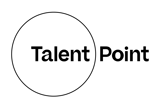From the very first point of contact, whether that's an initial phone call from one of our Researchers or a direct response to one of our job adverts, one area of the hiring journey is most important: applicant experience. That's the same no matter which side of the interview table you sit on, because whether you're one of our customers or someone looking for their next job, that experience makes all the difference.
Nailing the applicant experience doesn't just make it more likely that the perfect fit will accept the job offer, it makes it easier to find that perfect fit in the first place, helps them reveal themselves as the perfect fit, and ensures that the role is the perfect fit for both parties. That might sound a little hyperbolic, but trust us: it isn't. It's genuinely that important.
That's why we help our customers tailor every step of the hiring process to make it as positive for applicants as possible. After all, we want every single hire to result in a testimonial like this:
I had a great experience working with Talent Point and Jas in particular. His knowledge of his customer was second to none. He gave me all the information about the role and business to ensure it was the correct role for me and my career. Hamza Abdi, Mobile QA Engineer @ The Collective
Getting to know each other.
It might sound obvious, but the first stage of any hiring process should be making certain that the journey is worthwhile for everyone involved. Regardless of how you get in contact with a jobseeker or a company (depending on which side of the hiring coin you're on) you don't want your time to be wasted. The easiest way to do that is to be upfront, honest and open in your communication.
For us, that means a bit of research followed by a phone call. Simply skimming a LinkedIn profile and CV won't cut it, nor will a job description ever truly paint the most accurate picture (even if you follow all of our advice on making them engaging). Neither party will really know how well this role will fit, so pick up the phone or arrange to meet over a coffee and talk it out.
Sometimes the simplest of conversations can highlight that what seemed ideal on paper isn't the best partnership in reality. Maybe the skills aren't quite aligning, maybe the company has different career needs to the applicant, maybe they're underselling themselves and should be looking at greater seniority. Whatever it is, we're much better at working out the nitty gritty in person and it gives both parties the chance to ask questions and determine if the next step is worth taking. While that can feel like a lot of extra work for a Hiring Manager, it saves many more hours further down the line!
We've had some very good hiring experiences with Talentpoint. They put you through some rigorous up front questioning to make sure you've really thought through the role design and the interview/ selection process. That makes the hiring easier and the candidate choice better. It's a bit like circuit training. It hurts at the time but you're better for it afterwards! Doug Conely, Chief Product and Technology Officer @ Peach
Simplify.
Here's a question. I'm willing to give you £1,000… with a catch. In order to claim it, you need to travel all over London, spend dozens of hours over the course of one or two months getting interrogated by strangers, give a presentation on an arbitrary subject, and take a selection of increasingly convoluted tests involving arcane logic problems and overly niche technical knowledge. I'm not going to give you any indication in advance of what these various tasks involve, how long they might take, or how many there will be. Oh, and at the end of it, we're going to roll a die and if it comes up on any number other than 2, you forfeit the money entirely.
Hopefully, that sounds like a ridiculous proposal. Sure, at the end of it all there could be a pretty decent reward, but is it really worth all that effort? No one wants to sign up for a two-month process, be asked to perform multiple tests or develop presentations, all for a reward that may never occur. So don't ask them to.
Simplify your interview process as much as possible. Do you really need three stages of face-to-face interviews for a Mid-level Engineer spread over two weeks? Or could you arrange a single afternoon where they meet all the relevant stakeholders? Could you get rid of the technical test and just ask a couple of specific questions at the interview? Once you start looking at a hiring process critically, you'll find it's not that hard to strip it back, and doing so can really help.
Many of the companies we've helped to simplify their hiring processes have seen higher levels of engagement from applicants and reduced rates of drop outs, which isn't all that surprising (and yes, we'll be releasing some of our own stats on this very soon!). It's easier to get someone excited over the course of a single afternoon then spread out over a month, and the shorter the process the lower the risk of that applicant finding another role elsewhere.
Big shout out to Ben in particular. He's been an excellent communicator and has restored faith in someone that takes care in matching the right candidates to the right company in terms of both culture and skillset. Lauren Harrington, Product Owner @ Affectv
Be honest and upfront.
Once you have that refined format, the next step is ensuring that you're being transparent. From the initial job advert through to the final contract, there shouldn't be any unexpected surprises along the way. Again, this comes back to simple efficiencies: if you know a particular responsibility of the role is going to be a sticking point, don't hide it; if an element of the hiring process has traditionally caused applicants to ghost, make sure they know about it from day one. Not doing so only guarantees dropouts, irritation, and a bad employer brand.
Instead, outline the hiring process – including any tests or exercises that you've decided to keep – in the job description. For us, that means the Campaign Brief, which includes a full blow-by-blow account of what an applicant can expect. From initial screening calls, to who they'll meet at interview, what topics a technical test might cover, and even how their induction will go, we lay it all out clearly and openly.
The same is true of non-ideal elements of a role. Maybe you're located outside of the usual tech bubbles, or perhaps there's an element of legacy support required. You're right in thinking these parts of the job will put off certain applicants, but not mentioning them until interview (or worse: until they arrive for their first day!) doesn't help. After all, if there's an element of the hiring process or role which someone is going to object to, they might as well object straight away.
Fantastic services. They really do guide you throughout the entire process and are completely transparent. Abdul Jolaoso, Business Analyst @ Amazon
Treat People Like People.
I cannot stress this enough: going into an interview to catch someone else out only serves to make your company look toxic. Don't toy with people, don't set traps with your questioning, and don't ignore what applicants are saying or asking. Playing mind games was the way of the 80s, but we live in an entirely new millennium and its time your techniques caught up.
Wondering what you can do? We have an entire resource for that! But the tl;dr of the matter is pretty simple: treat applicants like employees. Or better yet, treat them like what they really are: customers. After all, the interview is a two-way mirror and you're just as much in the interrogation chair as they are. So, greet them warmly, offer them a drink, make them feel comfortable, and generally be nice.
But it doesn't just stop (or start) with the interview. Our screening calls are formatted around conversational chats to put people at ease, the language of our job ads is designed to be as inclusive as possible, and we make ourselves available to applicants at any time to answer questions about the role or hiring process. Plus, at the end of it all, regardless of the outcome, we make sure to provide applicants clear feedback. All those little touchpoints and small pieces of effort add up to a hiring experience which should feel more like a partnership.
By doing so, we create a hiring journey which keeps people engaged and excited, whilst ensuring that the final pairing of applicant and customer is genuinely beneficial for both parties. Basically, we like our applicant experience like we like our whisky: silky, smooth, and with an extremely positive aftertaste.
I have never had such great experience with a talent agency before. Valentine was an absolute star, and really went beyond my expectations to make sure that I did well in my interview. He made the whole process a pleasant experience and I could not be thankful enough. Maja Sabatowska, Product Support Executive @ Peach

